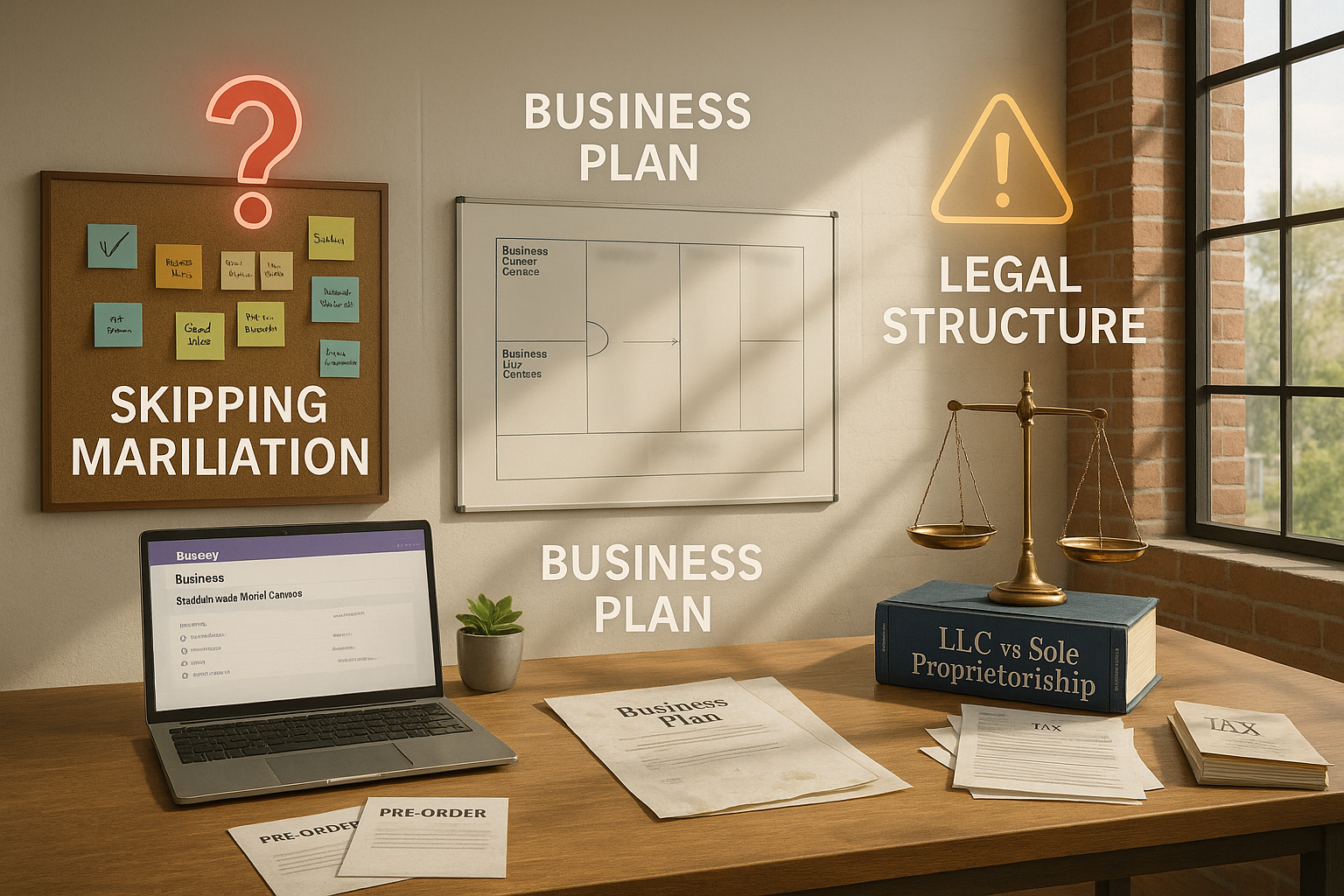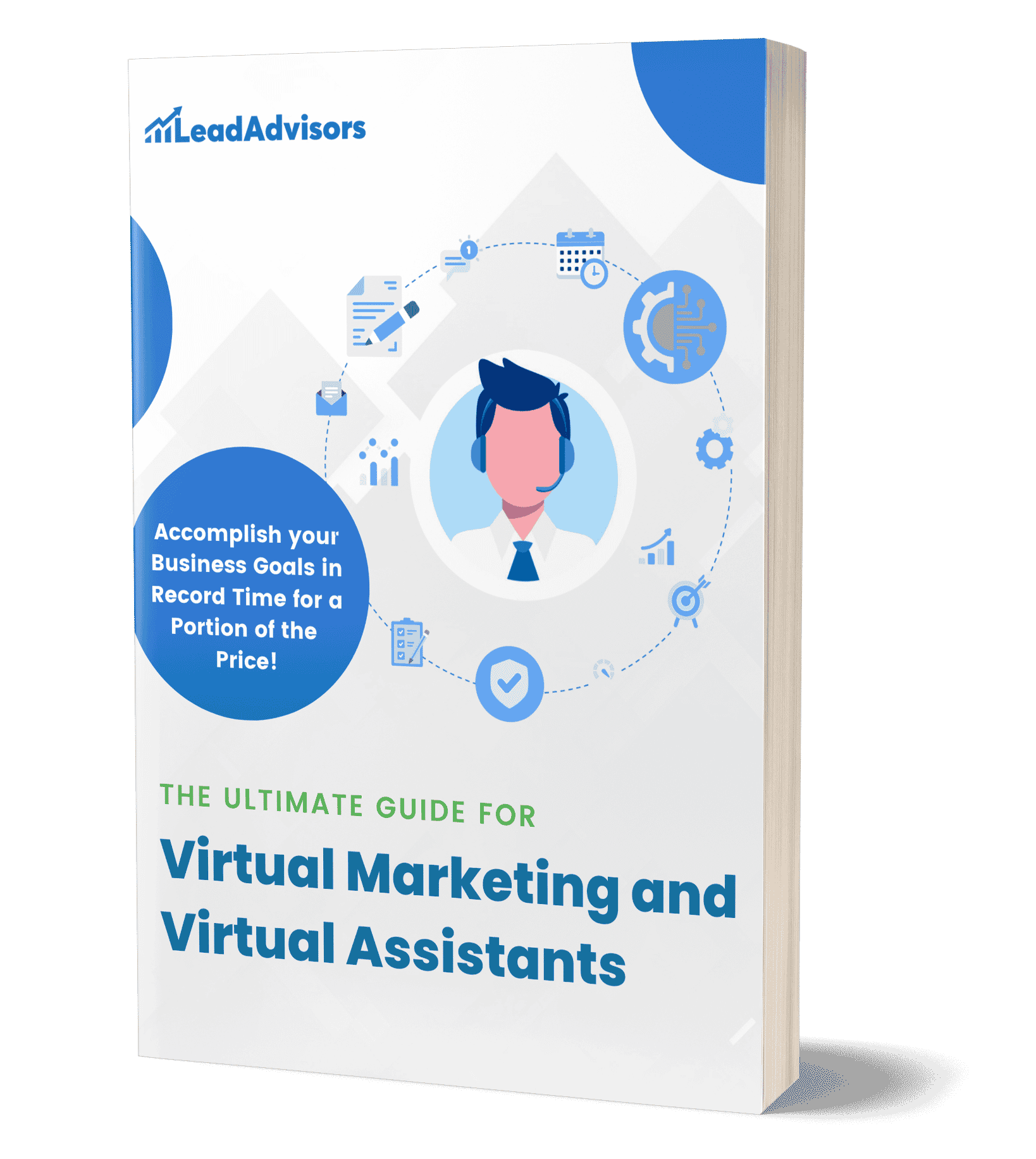Roughly 20% of startups bfail within their first year, and by year five, nearly half are gone. When you look at which of these reasons are the most common mistakes made by an entrepreneur starting a new business, patterns quickly emerge: poor planning, cash flow mismanagement, and ignoring customer feedback top the list.
This guide breaks down the common mistakes to make as an entrepreneur – from pre-launch pitfalls to scaling missteps – so you can sidestep them from day one. Avoiding these common entrepreneur mistakes won’t guarantee success, but it dramatically increases your odds of building a sustainable, thriving business.
Pre-Launch Pitfalls (Planning & Validation Stage)

1. Skipping Market Validation – One of the Common Entrepreneur Mistakes
One of the most common entrepreneur mistakes is diving into product development without confirming that anyone actually wants what you’re building. Founders often get emotionally attached to their idea, only to find the market isn’t ready – or willing – to pay. A great piece of advice from Reddit says, “Market and sell before writing a line of code.”
Action step: Test demand early with simple tools: send surveys via Google Forms, offer pre-orders, or recruit beta testers. This approach saves time, capital, and heartbreak.
2. Launching Without a Clear Business Plan
Skipping a business plan is one of the common mistakes to make as an entrepreneur because it leaves you without a roadmap for growth. Some founders avoid it because they think it’s too time-consuming or unnecessary in the early stages. In reality, a lean business plan can be just a one-page outline that covers your value proposition, target audience, revenue model, and marketing strategy.
Action step: Use frameworks like the Business Model Canvas or Lean Canvas to map the essentials. Even a minimal plan can keep your vision focused and investors confident.
3. Choosing the Wrong Legal Structure
Your business’s legal structure affects taxes, liability, and funding opportunities – making the wrong choice can be an expensive headache to fix later. For example, operating as a sole proprietor might be simple, but it can leave your personal assets exposed. On the other hand, forming an LLC or corporation offers liability protection but comes with additional compliance.
Action step: Check your regional business registry for guidance (U.S. SBA guide) and, if possible, consult with a small-business attorney before registering. Making the right choice now can save major restructuring costs down the line.
Early Operational Mistakes (First 6-12 Months)
4. Ignoring Customer Feedback
When asked which of these reasons are the most common mistakes made by entrepreneurs starting a new business , ignoring customer feedback ranks near the top. Many founders fall in love with their initial idea and resist making changes – even when real users are signaling problems.
Action step: Use practical listening tools like Typeform for surveys, Google Analytics for behavior tracking, and Intercom or Drift for real-time conversations. Regularly review patterns and adjust your product or service to align with actual customer needs, not just your assumptions.
5. Underestimating Cash Flow Needs
Cash flow is not the same as profitability. A business can be profitable on paper yet run out of cash and fail. Many entrepreneurs only track revenue and expenses without considering payment delays, seasonal dips, or sudden expenses.
Action step: Use tools like Float, QuickBooks, or Xero for cash flow forecasting. Create a 12-month projection, factoring in worst-case scenarios. Having three to six months of operational expenses in reserve can prevent your startup from stalling.
6. Trying to Do Everything Yourself
In the early days, bootstrapping often meant wearing many hats, but doing everything yourself was one of the fastest routes to burnout. Beyond fatigue, it limited growth because one couldn’t focus on high-impact activities.
Action step: Identify the first hires or contractors who can take over time-consuming but essential tasks – like bookkeeping, social media, or customer service – so you can focus on vision, strategy, and revenue.
7. Neglecting Online Presence
Even if your business is offline-first, skipping a digital footprint is a major oversight. Without an online presence, you lose credibility and make it harder for customers to find you.
Action step: Start small: create a clean, mobile-friendly website, set up a Google Business Profile, and establish at least one active social media channel. Layer in basic SEO, a few blog posts, and customer testimonials for instant social proof.
Scaling & Growth Mistakes (Months 12–24+)
8. Partnering with the Wrong Investors
The right investors bring more than just money – they offer strategic guidance, networks, and credibility. The wrong ones, however, can push you in directions misaligned with your vision or pressure you into short-term gains over long-term health.
Action step: Perform due diligence on potential investors as thoroughly as they do on you. Look for alignment on values, growth timeline, and exit expectations. Speak with other founders they’ve backed to uncover red flags.
9. Failing to Build Scalable Systems
As your business grows, ad-hoc processes and manual workarounds start to break down. Without scalable systems, you risk bottlenecks, errors, and frustrated customers.
Action step: Invest early in affordable, scalable tools – like HubSpot for CRM, Asana or Trello for project management, and Zapier for automation. Standardize workflows so they can be replicated and improved without constant founder oversight.
10. Ignoring Leadership & Team Culture
Rapid growth can stretch your team thin, and without intentional leadership, culture can deteriorate quickly. Burnout, high turnover, and toxic dynamics are common symptoms.
Action step: Hold regular one-on-one check-ins, celebrate wins, and provide professional development opportunities. Define your core values and ensure hiring decisions reflect them. A healthy culture is a competitive advantage that keeps top talent engaged.
Mindset & Strategic Oversights
11. Fearing Failure & Perfectionism
Many founders wait for the “perfect” moment or product before launching, only to miss market opportunities. Perfectionism often masks fear of failure and slows progress. The reality is that the best companies launch, learn, and iterate.
Action step: Adopt the “launch now, refine later” mindset. Set a clear minimum viable product (MVP) deadline and stick to it. Treat early launches as experiments, not final exams.
12. Being Reactive Instead of Strategic
When you’re in the trenches, it’s easy to focus only on urgent issues, reacting instead of planning. This leads to inconsistent growth and missed opportunities.
Action step: Implement a monthly planning framework. Dedicate one day each month to reviewing performance metrics, adjusting goals, and mapping out the next steps. Use tools like Notion or ClickUp to keep strategy and execution visible to the whole team.
13. Overemphasis on Product Over Sales
A great product is worthless if no one knows it exists. Many founders focus too much on building features and not enough on building a customer base.
Action step: Allocate equal (or greater) energy to sales and marketing as you do to product development. Build a simple customer acquisition plan with clear channels, budgets, and KPIs. Remember – revenue validates your idea faster than any feature ever will.
Lesser-Known but Costly Mistakes
14. Neglecting Regulatory Compliance
While regulatory compliance might not feel urgent in the early days, ignoring it can lead to costly fines, legal issues, and even forced shutdowns. Requirements vary widely depending on your industry and location, from data privacy rules (like GDPR) to specific licensing.
Action step: Identify your local and industry-specific regulations early. Use resources like your regional Chamber of Commerce or small business development center. Schedule an annual compliance review with a legal advisor to stay ahead of changes.
15. Not Leveraging Automation Early
Manual processes consume time and mental energy that could be spent on growth. Many entrepreneurs wait until they’re overwhelmed to introduce automation, but by then, they’re already behind.
Action step: Implement automation tools early. Zapier can link apps and streamline repetitive tasks, Mailchimp or ConvertKit can automate email marketing, and QuickBooks can automate invoicing and expense tracking. Even small efficiencies compound over time, freeing you to focus on scaling.
Actionable Startup Survival Checklist
Avoiding these common entrepreneur mistakes is much easier when you have a quick-reference guide. Here’s a condensed version you can bookmark:
| Don’t do this | Do this instead |
| Build before validating | Test demand with surveys, pre-orders, and beta testers |
| Skip the business plan | Create a one-page lean plan with goals and strategies |
| Choose a random legal structure | Research and consult on the best fit for taxes & liability |
| Ignore customer feedback | Use surveys, analytics, and direct conversations to adapt |
| Confuse profit with cash flow | Forecast monthly and keep a reserve buffer |
| Do everything yourself | Delegate or outsource early to protect your time |
| Neglect online presence | Launch a simple, SEO-friendly website and social proof |
| Accept any investor | Vet for values and growth alignment |
| Rely on ad-hoc processes | Set up scalable tools and workflows |
| Neglect team culture | Hold check-ins, define values, and celebrate wins |
| Wait for “perfect” | Launch now, refine later |
| React to problems only | Use monthly strategic planning |
| Focus only on the product | Prioritize sales and marketing equally |
| Ignore regulations | Stay current on industry compliance |
| Delay automation | Automate repetitive tasks early with affordable tools |
Frequently Asked Questions
What are the most common mistakes entrepreneurs make when starting a business?
How can I validate my business idea before launching?
Why is cash flow management critical for startups?
When should entrepreneurs start automating business processes?
How can I avoid choosing the wrong investors for my startup?
Conclusion
Avoiding the common mistakes to make as an entrepreneur doesn’t just save time and money – it significantly improves your chances of building a business that lasts. From validating your idea to maintaining cash flow, fostering a strong team culture, and embracing automation, every step you take to sidestep these pitfalls is an investment in long-term success.
The journey will still have challenges, but by learning from the common entrepreneur mistakes others have made, you can navigate them with greater confidence.
Take a moment to assess your own business today. Which habits, processes, or blind spots need attention? Start small, act consistently, and remember – success is rarely about avoiding every misstep. It’s about catching them early and adjusting before they cost you your dream.












